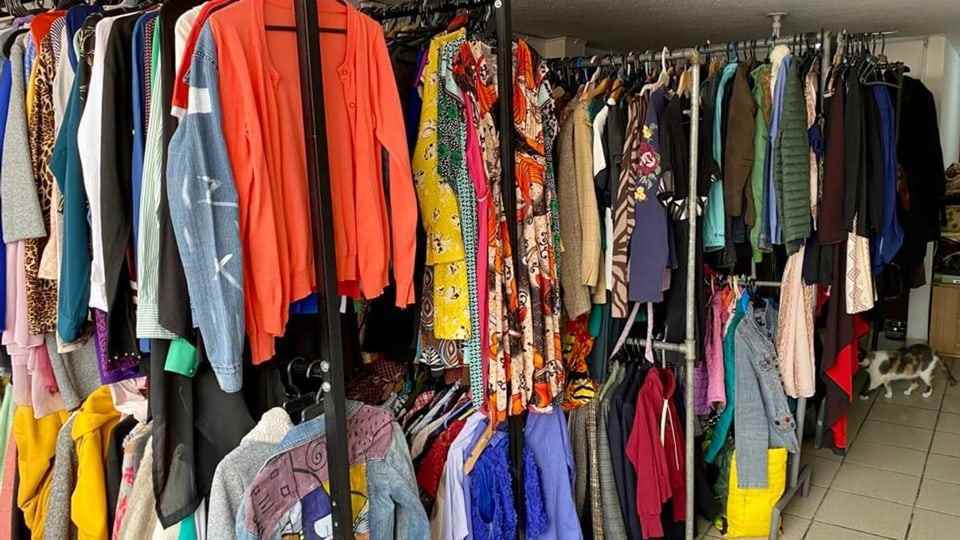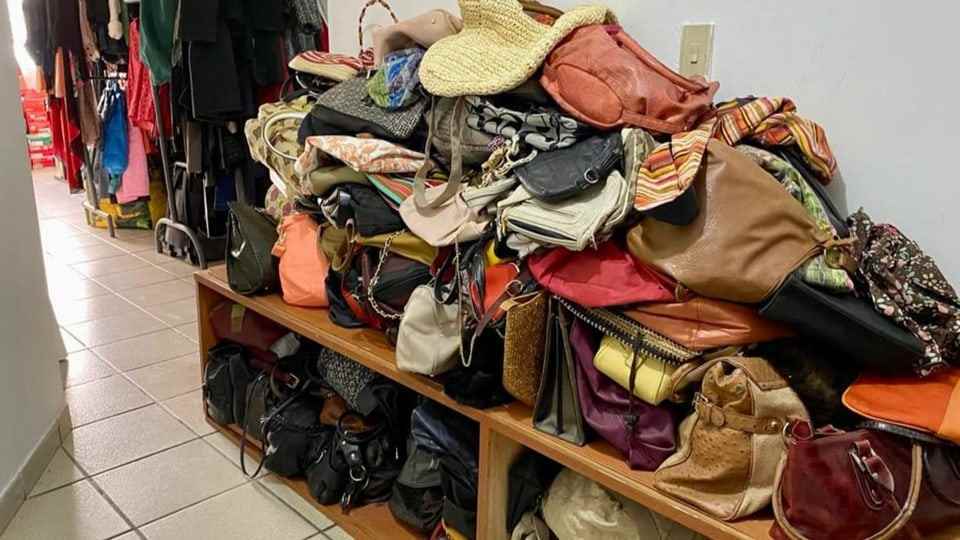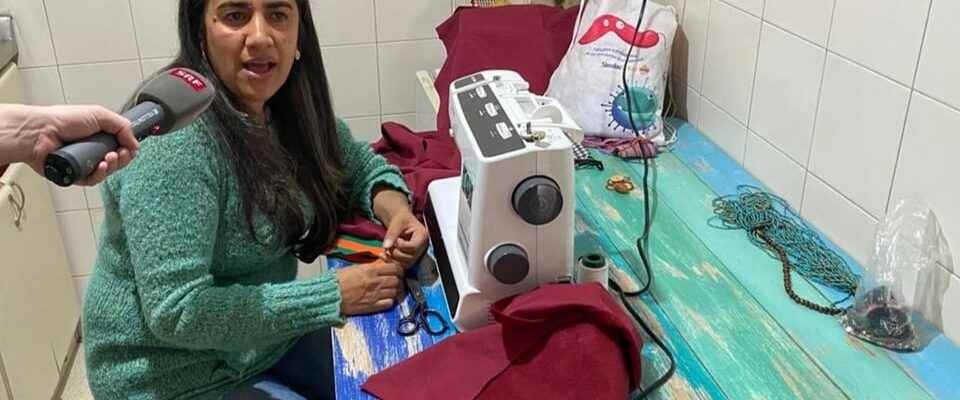contents
A family in Bogotá keeps their heads above water after Corona with second-hand goods and the Internet. A little success story from Colombia.
Fill, label and seal packages. Get new material from the warehouse, sort it, pack it, send it off. What sounds like the logistics center of an online retailer is actually a small living room in the north of the Colombian capital Bogotá.
“Would you please bring me a new thread,” Ana Aldana calls out to her eldest son, Brian. There is a sewing machine right next to the living room in the kitchen. Behind it, on the stovetop, are scissors, thread, green and blue felt, or buttons of all shapes and sizes. The Aldana family sells second-hand clothes online.
Legend:
Ana Aldana buys most of her clothes in second-hand shops and embroiders them with colored patterns. It lengthens or shortens sleeves and replaces the inner lining if necessary. Then the clothes are sold at a higher price.
SRF/David Karasek
The clothes are photographed. The images are then shown in an app with a price tag. The orders received via the app are packed in boxes and brought directly to the customer.
Converted, the family earns around 800 francs a month. Brian is responsible for transporting the goods. His younger sister sorts the warehouse. The mother Ana Aldana mends the old second-hand clothes.

Legend:
The living room of the Aldanas is the warehouse with about a thousand clothes hanging on clothes rails.
SRF/David Karasek
“I had to reinvent myself during the pandemic,” explains Ana, who previously worked as a saleswoman in a shoe store. The shop was closed for over a year during the pandemic and then went bankrupt. She lost her job. Then she came up with the idea of the old clothes. Her son Brian was a physical education teacher in a primary school in Bogotá. Classes were canceled during the pandemic, after which his contract was not renewed.
All of South America is suffering
The pandemic has plunged South America into one of the worst economic crises in its history. According to a report by the International Labor Organization (ILO), 43 million jobs were lost. In many countries, people have not been able to access short-time or home-based work support schemes. Simply because the governments do not have the means to do so.
Most of the jobs that have been re-created in recent months are in the informal sector. So without social security and without employee protection. The same happened to the Aldana family. They have secured their livelihood with online trading, but if no clothes sell, there is nothing to eat in the evening.
Not only is that difficult, but family life is also suffering, says Brian: “We are under pressure and often argue. We work late into the night and the demand is increasing more and more.»
Online business relatively young
While it has long been normal around the world to order clothes, toys, books or hair gel online, this was not a matter of course in South America for a long time. The pandemic has changed that. According to the US news agency Bloomberg, the proportion of the population that shops online has doubled to 67 percent.

Legend:
Trading in used leather handbags is also part of the Aldana family’s business model.
SRF/David Karasek
This also has to do with the fact that many are still afraid of corona infection given the poor health systems and avoid doing business with many people.
“We save so much money,” says Ana. With online trading at home, they don’t have to take the expensive bus to work. The costs for a storage room and an office are also saved. “We only pay once for electricity and the family is always together.” The past month has been so good that the family can now afford a refrigerator for the first time ever.
